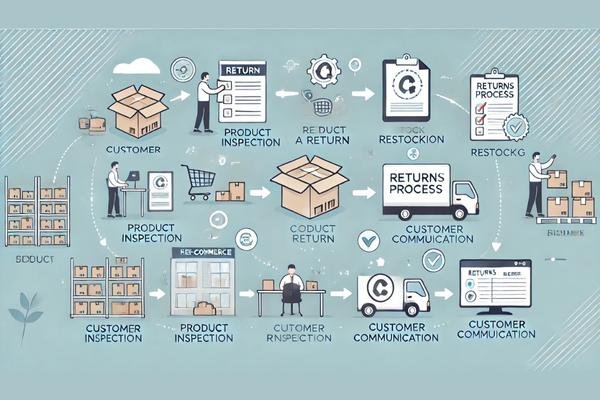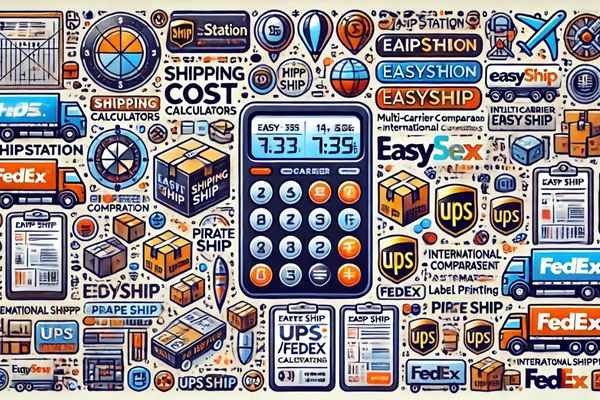
How to Implement Self-Service Tools for Better Customer Satisfaction
October 1, 2024
Best Customer Support Ticketing Systems to Streamline Your Business Operations
October 1, 2024Best Multichannel Customer Support Tools for a Seamless Experience.
Providing exceptional customer support across multiple channels has become crucial in the fast-evolving digital world. To keep pace with growing consumer expectations, businesses must adopt multichannel customer support tools that facilitate seamless communication. These tools allow companies to connect with customers through platforms like email, social media, live chat, and phone calls, ensuring every inquiry is handled efficiently. In this article, we’ll dive into the best multichannel customer support tools and how they can improve the overall customer experience.
Table of Contents
Why Multichannel Support Matters ?
Modern customers expect immediate responses, no matter the channel they use. Whether they reach out via Twitter, send an email, or contact a brand through live chat, the experience should be cohesive and quick. Implementing multichannel support tools can help businesses meet these expectations by unifying interactions, keeping communication streamlined, and reducing response times.
By adopting multichannel customer support tools, businesses can:
- Respond faster to customer queries.
- Provide support across various platforms.
- Improve customer satisfaction and loyalty.
- Streamline internal workflows by consolidating customer communication in one place.
1. Zendesk: A Leading Multichannel Support Solution
Main Features:
- Unified Dashboard: Zendesk brings customer communication from email, phone, chat, and social media into one dashboard.
- Automation: The platform offers automation features, allowing teams to handle tickets more efficiently.
- AI-powered Bots: Zendesk’s AI-powered chatbots help solve customer queries even when human agents aren’t available.
Why Zendesk? Zendesk is one of the most popular multichannel support tools on the market. Its simplicity, combined with powerful features, makes it an excellent choice for businesses of all sizes. The platform also offers integrations with various CRM systems and collaboration tools, enhancing its functionality.
Pros:
- Easy-to-use interface.
- Scalable for growing businesses.
- Advanced automation and AI capabilities.
Cons:
- Pricing can be steep for smaller businesses.
- Learning curve for setting up advanced features.
For those looking to improve their customer support experience, Zendesk can be a valuable addition to your toolkit. Check out Zendesk’s pricing and features here.
2. Freshdesk: Affordable and User-Friendly Multichannel Support
Main Features:
- Omnichannel Integration: Freshdesk enables seamless communication across email, chat, social media, and phone.
- Gamification: The platform incorporates gamification to motivate support agents by rewarding them for resolving issues promptly.
- Collaboration Tools: Freshdesk makes it easy for support teams to collaborate on solving customer issues with shared tickets and internal notes.
Why Freshdesk? Freshdesk is known for its affordable pricing structure and intuitive design. Its focus on providing easy-to-use multichannel support has made it popular among startups and small businesses. With Freshdesk, you can start small and scale as your business grows.
Pros:
- Budget-friendly options.
- Easy setup and integration.
- Excellent customer support.
Cons:
- Advanced features only available on higher-tier plans.
- Limited customization options for lower-priced plans.
Freshdesk is perfect for businesses that need a comprehensive support solution without the high costs. Learn more about Freshdesk here.
3. HubSpot Service Hub: A Comprehensive CRM Solution with Multichannel Support
Main Features:
- CRM Integration: HubSpot Service Hub integrates directly with HubSpot’s CRM, allowing businesses to keep track of all customer interactions.
- Ticketing System: The platform includes an intuitive ticketing system, making it easy to manage customer inquiries.
- Knowledge Base: Service Hub offers a self-service knowledge base, empowering customers to find answers to their questions on their own.
Why HubSpot Service Hub? HubSpot is known for being an all-in-one CRM solution, and its Service Hub is no exception. The platform enables businesses to deliver excellent customer support while keeping track of interactions in a centralized system.
Pros:
- Powerful CRM integration.
- Easy-to-use ticketing system.
- Rich reporting and analytics features.
Cons:
- Can become expensive as more features are added.
- Advanced capabilities may require some training.
For businesses already using HubSpot’s CRM, Service Hub is an excellent tool for delivering multichannel support. Discover how HubSpot can benefit your business here.
4. LiveAgent: A Robust Multichannel Help Desk Software
Main Features:
- Multi-channel Ticketing: LiveAgent brings together emails, chats, calls, and social media into a single ticketing system.
- Call Center Capabilities: LiveAgent offers built-in call center functionality, allowing businesses to handle phone support alongside other channels.
- Real-Time Live Chat: LiveAgent’s real-time live chat helps agents engage with customers instantly.
Why LiveAgent? LiveAgent stands out for its robust ticketing and live chat features. It’s a great solution for businesses that need to provide real-time assistance to customers, especially for companies in the SaaS and e-commerce industries.
Pros:
- Comprehensive multichannel support.
- Built-in call center feature.
- Affordable pricing for small businesses.
Cons:
- The interface can feel outdated.
- Mobile app performance could be improved.
LiveAgent is a solid choice for companies looking for an affordable and complete multichannel customer support system. Explore LiveAgent’s features here.
5. Intercom: A Messaging-First Multichannel Support Solution
Main Features:
- Conversational Interface: Intercom is built around a messaging-first experience, allowing businesses to chat with customers via the website, mobile apps, and email.
- Customer Segmentation: The platform offers advanced segmentation, helping businesses deliver personalized customer experiences.
- Automation & Bots: Intercom’s AI chatbots can handle common queries, freeing up agents for more complex issues.
Why Intercom? Intercom’s messaging-first approach sets it apart from other tools on this list. If you value conversational interactions with customers and want to prioritize messaging as your main support channel, Intercom is the ideal solution.
Pros:
- Exceptional chat and messaging features.
- Customizable chatbot options.
- Great for customer engagement and retention.
Cons:
- Higher pricing compared to other tools.
- Limited focus on phone support.
For businesses that focus heavily on messaging and live chat, Intercom can greatly enhance customer experience. Learn more about Intercom here.
6. Zoho Desk: A Flexible and Customizable Multichannel Tool
Main Features:
- Customizable Interface: Zoho Desk allows businesses to tailor the support dashboard to fit their specific needs.
- Multi-department Ticketing: Zoho Desk supports multi-department ticketing, ensuring the right team handles each inquiry.
- AI-Powered Zia Assistant: The platform’s AI assistant, Zia, helps agents by suggesting answers and automating repetitive tasks.
Why Zoho Desk? Zoho Desk is an affordable option that doesn’t skimp on features. Its high level of customization and AI integration make it an attractive choice for businesses looking for flexibility.
Pros:
- Highly customizable interface.
- Excellent AI-driven features.
- Affordable pricing plans.
Cons:
- Limited third-party integrations.
- The mobile app could be more intuitive.
Zoho Desk is a powerful tool for businesses needing a tailored, flexible solution for their customer support. Check out Zoho Desk’s plans here.
Best Multichannel Customer Support Tools for a Seamless Experience Comparaison
Best Multichannel Customer Support Tools
| Tool | Main Features | Best For | Link |
|---|---|---|---|
| Zendesk |
– Unified dashboard for all channels – AI-powered chatbots – Advanced automation | Businesses of all sizes needing robust multichannel support | Visit Zendesk |
| Freshdesk |
– Seamless omnichannel integration – Gamification to motivate agents – Affordable pricing | Startups and small businesses | Visit Freshdesk |
| HubSpot Service Hub |
– CRM integration – Intuitive ticketing system – Rich reporting and analytics | Businesses using HubSpot CRM | Visit HubSpot |
| LiveAgent |
– Multi-channel ticketing – Built-in call center – Real-time live chat | Small businesses and e-commerce platforms | Visit LiveAgent |
| Intercom |
– Messaging-first interface – Advanced customer segmentation – AI-powered chatbots | Businesses prioritizing messaging and chat | Visit Intercom |
| Zoho Desk |
– Highly customizable dashboard – Multi-department ticketing – AI-powered Zia assistant | Businesses needing flexible and affordable solutions | Visit Zoho Desk |
Frequently Asked Questions (FAQs)
What is multichannel customer support?
Multichannel customer support refers to the use of multiple platforms (like email, social media, live chat, and phone) to assist customers, ensuring that they can communicate with a business through their preferred method.
Why is multichannel support important for businesses?
Multichannel support is crucial because it allows businesses to reach customers where they are most comfortable. It enhances customer satisfaction, reduces response times, and boosts loyalty by providing a seamless experience across platforms.
What should I look for in a multichannel customer support tool?
When choosing a multichannel customer support tool, consider features like integration with other software, ease of use, scalability, and the ability to unify communication from different platforms. It’s also important to assess the tool’s automation and AI capabilities.
Conclusion
Choosing the best multichannel customer support tools can significantly improve the customer experience while boosting team efficiency. Whether you’re a startup or a large enterprise, the tools listed here offer various features and price points to meet your needs. Implementing these solutions will help you provide seamless, prompt, and effective support across multiple channels, keeping your customers happy and your business thriving.








